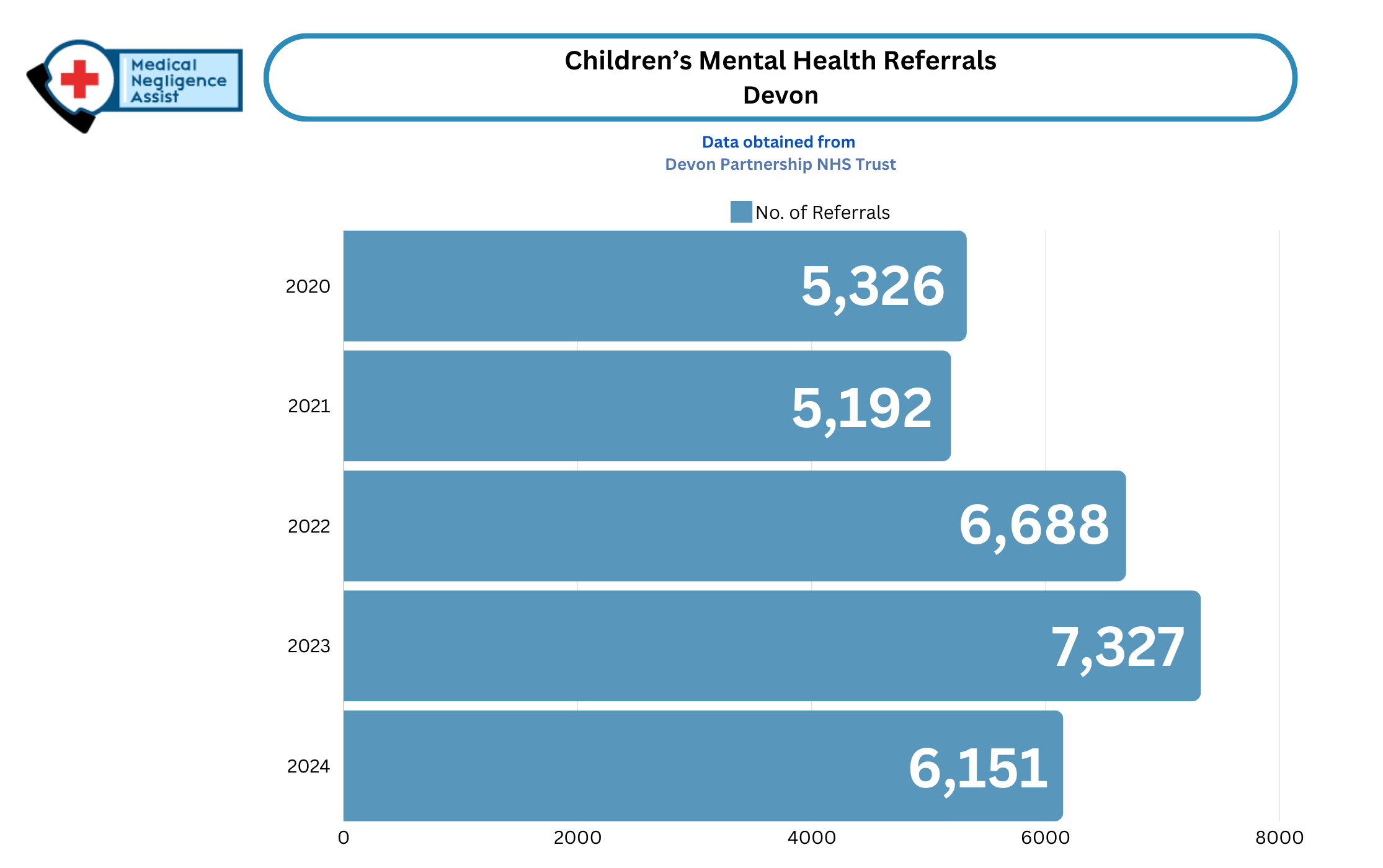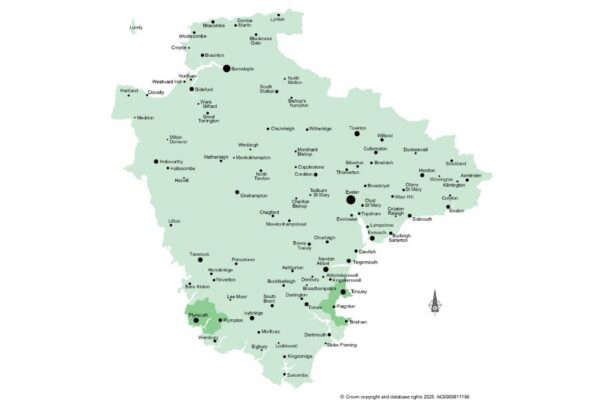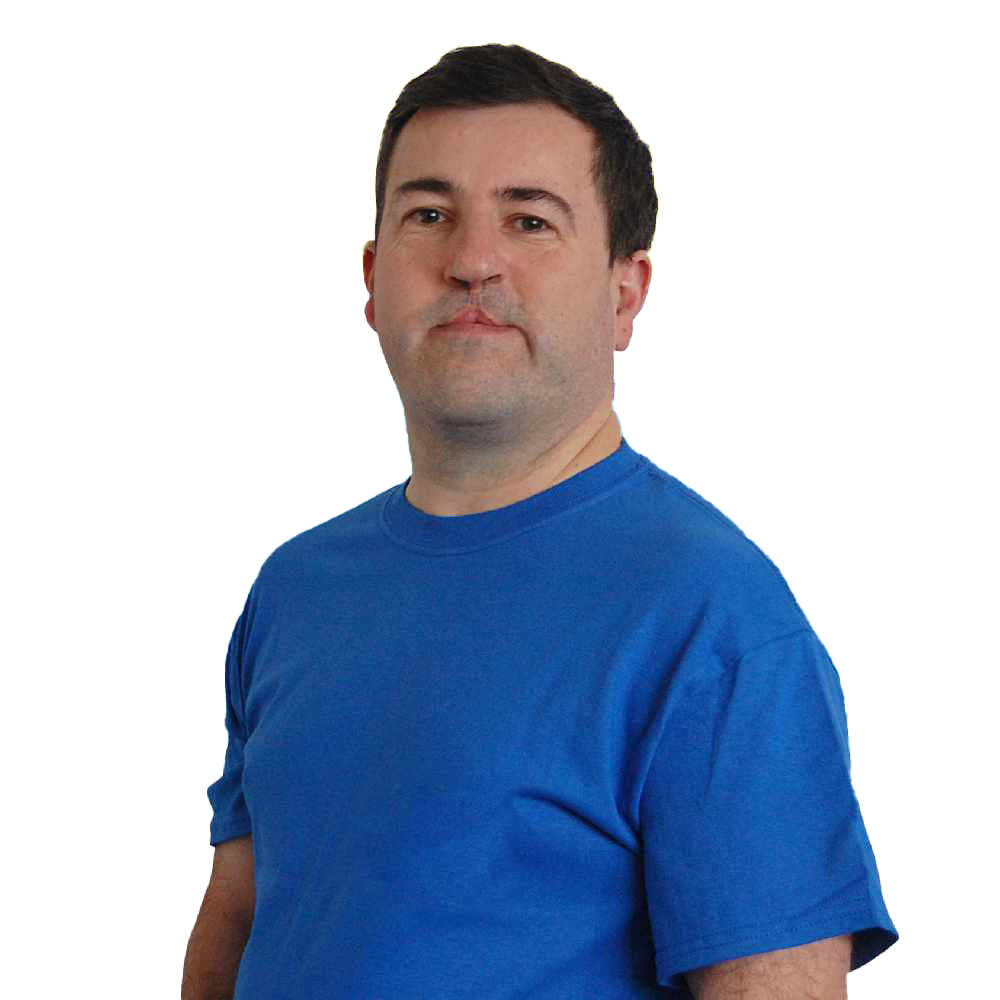
The maximum waiting time for children’s mental health services at Devon Trust as of April 2024 was 427 days (61 weeks) from referral to first appointment
The maximum waiting time for children’s mental health services at Devon Trust as of April 2024 was 427 days (61 weeks) from referral to first appointment
More than 6,000 children have been referred to Devon Partnership NHS Trust for mental health this year, with 1,460 currently on the waiting list.
Data obtained by Medical Negligence Assist via Freedom of Information Requests to all NHS Mental Health Trusts has found that children face an average waiting time of 13 weeks from referral to a first appointment at Devon Trust - almost double the national average of seven weeks.
What’s more, the Trust confirmed that the longest recorded wait time as of the end of April 2024 was 427 days - that’s 61 weeks.
In the last year alone (2024), 6,151 children have been referred to Devon Trust for mental health, up from 5,326 in 2020 but down from 7,327 in 2023.
Complex emotional or behavioural problems, anxiety, self harm behaviours, ADHD and Suicidal Ideation were the most common reasons children were referred to the Trust’s mental health services in the last year.
But the biggest increase in referrals since 2020 was for ‘(Suspected) First Episode Psychosis’ which jumped by 218% from 22 referrals in 2020 to 70 in the last year.
First Episode Psychosis (or FEP) is a term used to describe the first onset of psychotic symptoms such as hallucinations, delusions or disorganised speech. Examples include, having strange thoughts, behaviours or emotions, talking to yourself and being suspicious or distrusting.
In the past five years, the most common referrals for children’s mental health at Devon Trust were for ‘Complex, Severe & Enduring Emotional or Behavioural Problems.’
Devon has received 8,086 such referrals since 2020 with figures increasing by 32% from 1,379 to 1,826 in the last year.
Common diagnosis under this term can include bipolar disorder, psychotic disorders and personality disorder.
Anxiety referrals were the second most common for children to Devon’s mental health services which have seen 6,468 referrals in the last five years.
The latest NHS statistics showing more than 500 children a day in England are being referred to mental health services for anxiety.
The Children’s Commissioner for England, Dame Rachel de Souza said she was ‘horrified’ by the national figures.
In a statement in September this year, she said: “I was horrified to see the latest NHS Statistics… For children and young people, each year is a significant portion of their young lives, so we need a fresh approach that intervenes much earlier to prevent children from reaching crisis point.”
Earlier this year, the chief executive of the NHS Confederation’s Mental Health Network, said the demand for children and young people’s (CYP) mental health services is greater than ever.
Sean Duggen said: “The numbers with a probable mental disorder have increased markedly since 2017, as have contacts with NHS mental health services with the unfortunate knock-on impact that too many are waiting months if not years to access support.
“While services are seeing far more children and young people, the increase in prevalence, demand, complexity and severity of need means that services are often struggling to meet that demand.
“And this is having a knock-on impact on other parts of the NHS, including general practice, paediatric services, emergency services, the voluntary sector, schools and local authority services.
“Services, such as GPs, referring into specialist NHS CYP mental health services are often frustrated by the long waiting lists and the fact that their referrals are not accepted because of the scale of the demand.”
This year at Devon Partnership Trust, 2,763 children have received treatment for mental health - that’s 45% of those referred, well above the national average of 32%.
The growing mental health crisis among children in the UK has been linked to a number of factors including the effects of the Covid pandemic, rising poverty levels and the powerful influence of social media and cyberbullying.
Andy Bell, the chief executive of the Centre for Mental Health charity said: “Our research indicates that academic pressures, particularly those related to exams, have intensified in the last decade. Rising levels of poverty and inequality have also contributed to increased anxiety among children and young people, including factors such as financial stress within households and the impact of racism. Evidence also suggests that online harms, such as cyberbullying and pressures around appearance, are relentless and can fuel anxiety in children.

 Vulnerable could be key battleground in council tussle
Vulnerable could be key battleground in council tussle
 Devon County Council welcomes national report supporting protection of vital care services
Devon County Council welcomes national report supporting protection of vital care services
 Devon’s public health leaders have ‘significant concerns’ about extending licencing hours
Devon’s public health leaders have ‘significant concerns’ about extending licencing hours
 Towns and parishes urged to act now to regain control of community facilities
Towns and parishes urged to act now to regain control of community facilities













